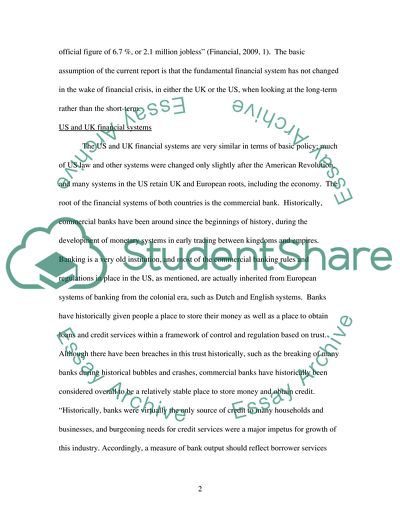Cite this document
(“The effects of the credit crisis on the UK and US financial systems Essay”, n.d.)
The effects of the credit crisis on the UK and US financial systems Essay. Retrieved from https://studentshare.org/miscellaneous/1558836-the-effects-of-the-credit-crisis-on-the-uk-and-us-financial-systems-over-the-past-two-years
The effects of the credit crisis on the UK and US financial systems Essay. Retrieved from https://studentshare.org/miscellaneous/1558836-the-effects-of-the-credit-crisis-on-the-uk-and-us-financial-systems-over-the-past-two-years
(The Effects of the Credit Crisis on the UK and US Financial Systems Essay)
The Effects of the Credit Crisis on the UK and US Financial Systems Essay. https://studentshare.org/miscellaneous/1558836-the-effects-of-the-credit-crisis-on-the-uk-and-us-financial-systems-over-the-past-two-years.
The Effects of the Credit Crisis on the UK and US Financial Systems Essay. https://studentshare.org/miscellaneous/1558836-the-effects-of-the-credit-crisis-on-the-uk-and-us-financial-systems-over-the-past-two-years.
“The Effects of the Credit Crisis on the UK and US Financial Systems Essay”, n.d. https://studentshare.org/miscellaneous/1558836-the-effects-of-the-credit-crisis-on-the-uk-and-us-financial-systems-over-the-past-two-years.


